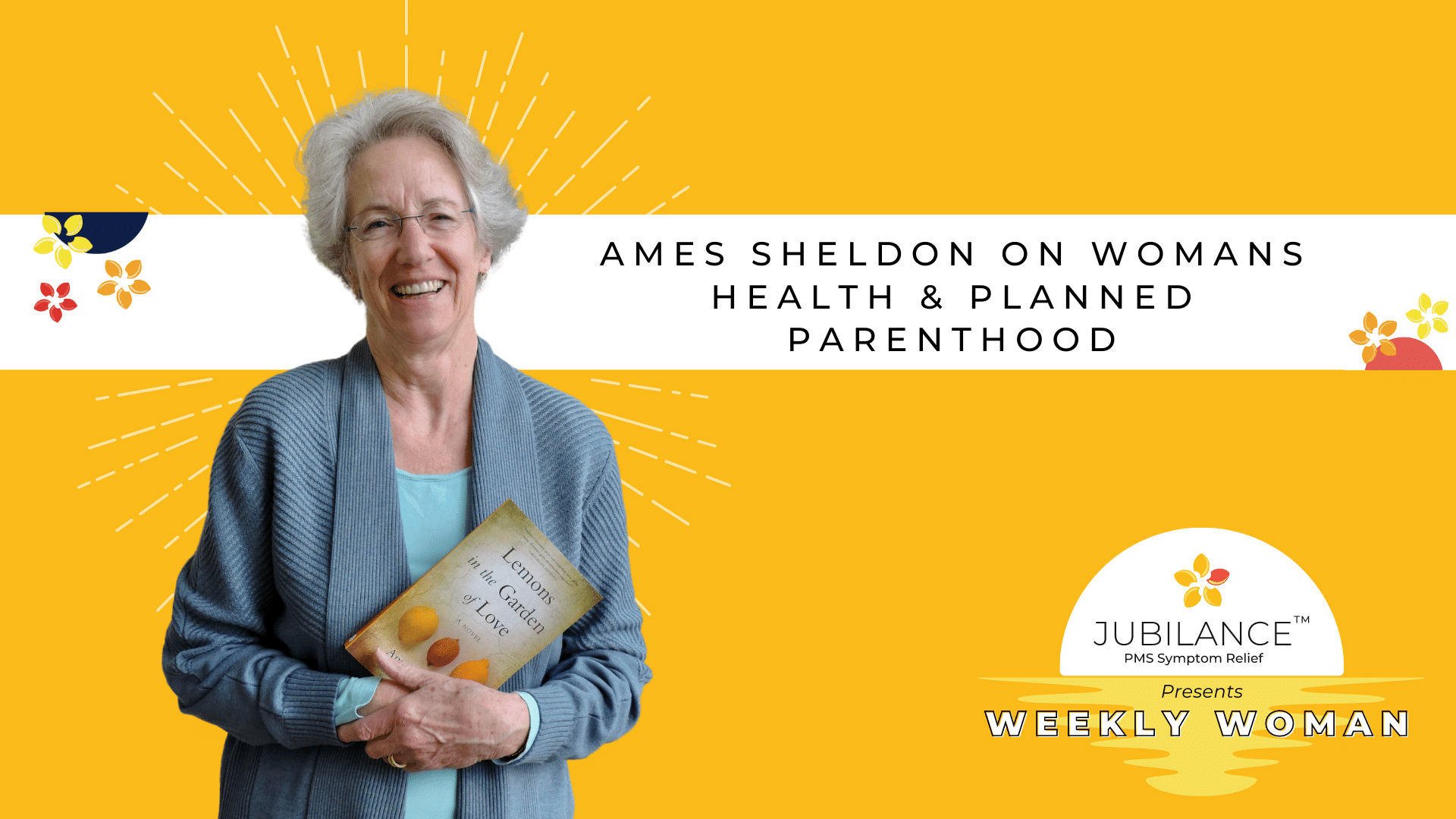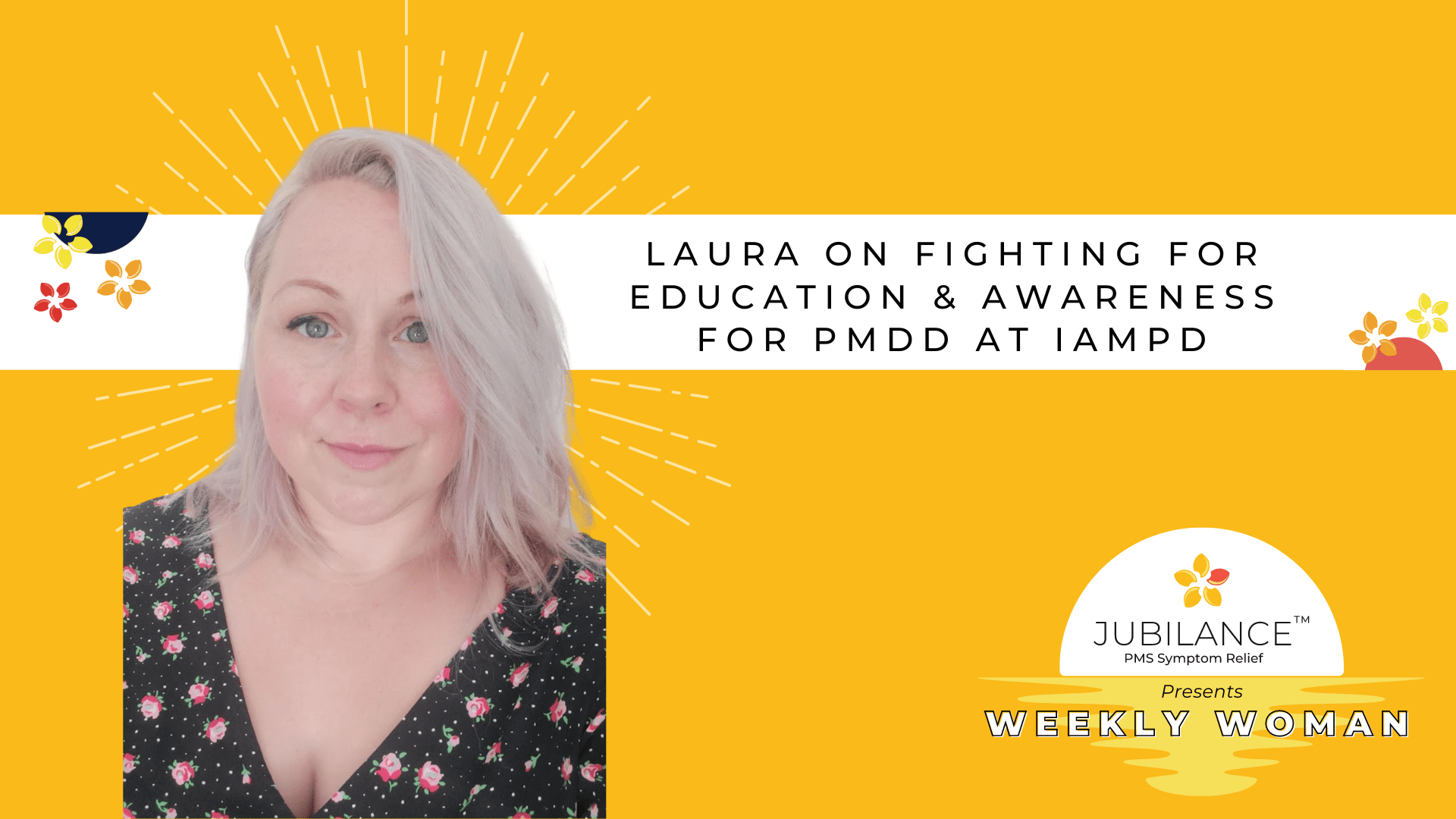We’re talking to Ames Sheldon this week who writes about women’s rights and equality for all.
As a company for women, by women, we represent all menstruators and love telling female stories so we’re happy to have Ames on the podcast. In light of Roe v. Wade being overturned, we’re interested in hearing her story and how she came to write about Women’s studies.
Ames Sheldon is an author who just came out with her new novel after working on it for forty years, Lemons in the Garden of Love. The story is about her great aunt who helped to found the Planned Parenthood of Massachusetts and how she pushed the boundaries in women’s rights.
Sheldon comes from a background of Women’s and Gender Studies as the lead author and associate editor of the ground-breaking Women’s History Sources: A Guide to Archives and Manuscript Collections in the United States, which contains descriptions of collections of original primary source materials pertaining to the history of tens of thousands of women and women’s organizations from the colonial period through the 1970s. In the process of working on this monumental 1,100-page reference book, Ames discovered her love for women’s history and for using primary sources for research.
The views of Ames do not reflect those of Jubilance for PMS, but we recognize the responsibility for telling every female story.
Watch the interview here:
Listen to the interview here:
Read the interview here:
Alice: Great. Welcome Ames, we’re excited to have you today on the podcast. Where are you calling in from?
Ames Sheldon: I’m calling in from Eden Prairie, Minnesota. I don’t know where you’re calling from.
Alice: Yeah, I’m from New York City. A little further away.
Ames: Yes, east of here.
Alice: Yeah, I saw that you did where you started in working in philanthropy for the Minnesota Historical Society. Is that right?
Ames: Actually, I started before that.
Alice: Okay.
Ames: The most significant job I’ve had probably was working as the primary author and associate editor of a reference book, a monumental reference book called Women’s History Sources: A Guide to Archives and Manuscript Collections in the United States.
They hired me to write and edit and proofread and index. This 1100-page book is made up of collections of women’s history, documents, letters, diaries, minutes of women’s meetings, women’s group meanings, and so on from the beginning of the country.
It was in the late 1970s when women’s history was a new field. People didn’t know what it was yet. That got me hooked on women’s history, thinking about it, researching women’s history, and finally writing about women’s history.
Alice: Yeah. I was reading about this book’s 1100 pages. That is insane and to go from like pre-revolution colonial times to the 1970s when it was published. I was reading that it became a big sourcebook for the field of women’s studies.
You are at the forefront of all of that, which is incredible.
Ames: Yeah. Well, me with a lot of other people. We had a great staff and a bunch of field workers, Women’s History. ABD students who are working on their dissertations in Women’s History, went around the country to get information for this book. There were a lot of us and it was a great effort. It was a wonderful undertaking.
Alice: Wow! That’s amazing. Now, you have a new undertaking with your new book that was just published, Lemons in the Garden of Love. You had to do extensive research for this particular book. It is based on your great-grand-aunt, Blanche?
Ames: Yes. Well, it was inspired by her.
Alice: Okay.
Ames: I took great liberties with the actual life of my great-grand-aunt. It was inspired by her. She was one of the cofounders of the Birth Control League of Massachusetts in 1916. I did do a lot of research on her experiences, trying to get birth control legalized in Massachusetts. It took 100 years.
Alice: Wow!
Ames: From the time, the Comstock laws outlawing birth control. We’re finally overturned by the Supreme Court in Massachusetts. It was quite an effort.
Alice: Wow! How did you go about that research? I know like this is a field that it’s a taboo subject that people don’t talk about women’s health. There’s a huge debate right now about abortion and Roe v. Wade.
How did you go about looking for this history? You mentioned even the predictor, which is one of the earliest home pregnancy tests in your book. How did you find these things?
Ames: Yes. Well, I did do a lot of research. I went to Smith college has a very impressive archive of material having to do with Women’s History, the Sophia Smith Collection. There is an Ames collection of material there.
Lots of information about Blanche Ames and the Birth Control League of Massachusetts. Those are primary documents, their original letters and minutes of meetings, and so on that. I asked the archivist to make me copies.
Since I live in Minnesota, not Massachusetts, easy to get there to see what all they had there. I did a lot of the research there. There are other archives, there’s one at Radcliffe that I went to and one at Boston University.
At the University of Minnesota, at the Minnesota Historical Society looking for material about, it wasn’t the Birth Control League of Minnesota, but the beginning of Planned Parenthood in Minnesota. A lot of research in places like that.
I also read a lot of even diaries and novels from the period the 1910s to 1920s, to get the right language down, as I was creating the diary of a character based on Blanche Ames.
Alice: Wow! That’s amazing. You did so much research and that’s great that you were able to get all of that information to you in Minnesota. Were you working on this during the pandemic?
Ames: I started work on this 40 years ago.
Alice: Oh, okay.
Ames: I did the first draft of this book in about 1980 and I tried to get it published and it just wasn’t the right time for it. Put it away.
Alice: Wow!
Ames: When Donald Trump was elected president, I decided what I could do. What I wanted to do was to bring this story out, to make sure that it did get published finally.
I reworked it and reworked it, and reworked it, and found a publisher, and got it. Got Lemons in the Garden of Love, created and out into the world at last.
Alice: Wonderful! Oh my gosh, that’s amazing. This is the time that we need to tell this story, unfortunately.
Ames: Yes.
Alice: Unfortunately, it’s still relevant 40 years on.
Ames: I’m afraid it’s timely.
Alice: Can you talk to us a little about that? What are their early years of Women’s History leading to Roe v. Wade? Teach us about this present moment that we’re living in.
Ames: Well, what I learned to work on this novel was, as I said briefly before, it took 100 years in Massachusetts to legalize birth control. Birth control had been legal in the 19th century, until the Comstock laws were passed, which outlawed contraception and material information about contraception.
That was 1873. It wasn’t until 1916 in Massachusetts that the Birth Control League was finally founded. It was found because there was a man who was passing out pamphlets about, why not have too many children in Boston? Handing them out to women coming out of a candy factory where they were working.
He was arrested and so it was his defense fund for these people, women who came together to help defend him. That’s what started the Birth Control League in Massachusetts in 1916. The organization continued to work; they tried to get laws passed in Massachusetts.
They had birth control clinics that were functioning very wonderfully in the 1930s until the police came and close them down. They tried to get various bills through the legislature.
Finally, in the 1950s, when they turned into the Planned Parenthood League of Massachusetts, birth control still wasn’t legal in Massachusetts. Women who came to Planned Parenthood in Massachusetts at that time actually would get sent to the Rhode Island to the Planned Parenthood place in Providence, Rhode Island to get their birth control.
Alice: Wow!
Ames: As I say, it took 100 years in Massachusetts for women to finally get legal birth control. Today, I think for most women, it’s hard to even know what it was like before birth control was readily available.
Alice: Yeah. I’ve never lived in a world where it hasn’t been easily accessible and something to be like praised and fought for and then. Yeah, even Roe v. Wade. I’ve never lived in a world without Roe v. Wade. Which I think is the most interesting part of how we can go back on something that was so long ago before so many lifetimes of people who live in this country.
Ames: Exactly. It was 50 years ago that Roe v. Wade was legalized. Based on the right to privacy of women to have an abortion. No State could prohibit abortion before the fetus is viable outside the womb, which occurs around 23 weeks of pregnancy. Now, in the 19th century, abortion was legal.
Alice: Wow!
Ames: Until quickening, until a mother could feel the baby moving. When proven, they could get legal abortions.
Alice: Wow!
Ames: Eighteenth-century and the early 19th century.
Alice: How is that determined? Was that just the mother saying, “I feel this and so?”
Ames: Yes.
Alice: Okay. They had even more autonomy back then because they were saying, “Okay, I feel this, or I don’t.”
Ames: Good point. Plus, if you feel it and you can get somebody else’s hand, feel it, too. If it happens when somebody is standing next to you and wondering.
Alice: Wow! You wrote this book; you decided it was the time to publish, and your publisher felt the same. Can you talk a little about what you think people can do to read this book and to learn and fight for Women’s health?
Ames: Yes, I think reading Lemons in the Garden of Love can be really helpful, especially for women who were born after Roe v. Wade. Because those are the women who don’t know what we could lose.
This book helps people understand the depth and the human cost of the long struggle for Reproductive Rights. Its centrality to the unfinished fight for gender equality.
Women have been trying to gain equal rights ever since the founding of this country after all. Women’s fight for equality and control over their bodies is far from over.
One of the things that is scariest to me about, if Roe v. Wade is overturned, it could very well open challenges to other legal rights to privacy, including contraception. Contraception could be made illegal.
Alice: That’s insane.
Ames: I know and it’s certainly difficult for millions of women in this country to get access to contraception even now. It could become illegal. The legal privacy rights are, that’s the basis of Roe v. Wade. It’s also the basis for contraception for same-sex marriage, for interracial marriage. It could be the beginning of a slippery slope.
What would we do without legal birth control? How do we control what’s going to happen? What we’re going to choose to do with our lives? How our lives are going to unfold?
Alice: That’s why we have that sexual revolution in the 60s we were finally able to get contraception. We were finally able to go to work and do other things other than just have children. To know that we didn’t have to have them and so we could do other things like you’re saying.
Ames: We could put them off while we finish getting our degree or whatever.
Alice: Have them later whenever we want.
Ames: Exactly.
Alice: It’s the decisions we’re making, like you’re saying,
Ames: Exactly. Yeah.
Alice: Can you talk a little about the reception of your book with Planned Parenthood? I read that you have the support of Dr. Jennifer Childs-Roshak, the CEO of Planned Parenthood in Massachusetts. Can you talk a little about that?
Ames: Well, it was very fun to engage with her because this story is mostly about the Birth Control League of Massachusetts. I was able to get a draft of the novel to her and her staff and to get her to read it, for her to give me her comments.
Alice: Wow!
Ames: Written on the back of the book. The same thing in Minnesota, where I know the CEO, is Sarah Stoesz quite well. She, too, read the book and had very nice comments to make about it.
I ended up giving hundreds of copies of this book to the Planned Parenthood of Minnesota as a gift because I wanted it to get out there. That’s why I’m talking to you. I wanted this book, Lemons in the Garden of Love, to go way out there to reach as many people as I possibly can.
I also send a copy to the CEO of every Planned Parenthood affiliate in the country. They’re 50 of those. Unfortunately, with the pandemic, there was no gala last year, or Planned Parenthood events where the books could be given out. I would have done that. I would have loved to have done that.
Alice: Hopefully this year.
Ames: Yes, exactly. Hopefully, this year.
Alice: Can you talk a little about what you think the future is for reproductive, right? We’ve touched on it a little, hopefully, something good.
Ames: Well, exactly. It’s scary. What’s important is that everybody votes in November that we vote for pro-choice candidates. Nancy Pelosi said, “I will turn this coming election into the biggest fight for women’s rights in our nation’s history”.
That’s true. I don’t think she’s overstating it. I don’t know that all women think that way or are aware of that, but it’s critically important. Then we elect pro-choice candidates.
Alice: Thank you. Yeah, we’ve got to get out the vote. Everyone listening, go vote in November. Come, November, midterm elections in town.
Ames: They sure do. Yeah. Going forward, it’s challenging it. The United States has the highest maternal mortality rate of any developed country and it’s because of the disparity and care and outcomes for black women. Health care for women is just under siege.
Alice: Yeah. There’s so much to talk about there, which is unfortunate. I didn’t know that one of the biggest developed nations and we have the highest cases of mortality for mothers.
Ames: Yeah. One of the problems would be if abortion is not legal. Women who have troublesome pregnancies. It could die, and a lot more women will die as a result if abortion becomes illegal. Ectopic pregnancies and miscarriages could be under siege if abortion isn’t legal.
Alice: Yeah, it will affect the women in like red States a lot more. Because like my state of New York or your state of Minnesota will be okay and be able to have abortions probably forever, hopefully.
Ames: Hopefully.
Alice: Very wrong. Like you’re saying, it’s going to affect the women who don’t have as much of a voice and who are more conservative and don’t have as great of access to healthcare as we do in Minnesota or New York City.
Ames: Exactly.
Alice: Which is unfortunate?
Ames: Yes. If Roe v. Wade is overturned, half of the states in this country will ban abortion. They’ve already got trigger laws, all ready to go. It will make the decision next week or early in the following week. It’s very scary.
Alice: Yeah. Well, let’s all get out and vote, that’s the biggest thing we can do. Read your book, Lemons in the Garden of Love, to learn more about this history.
Ames: Exactly, and give copies to your daughters or your sisters or your mothers. This information is really important. My great-grand-aunt. One of the things that she did, as she was an artist, and one of the bills that they were trying to get past, didn’t go, she ended up carving a wooden penis and going out on Commonwealth Avenue in Boston and showing how to use a condom.
People didn’t know about the early 20th century. Physicians didn’t know enough about reproduction and how to provide legal birth control. The Harvard Medical School did not have any information about birth control in what they offered their students until the 1940s.
Alice: Wow!
Ames: The doctors didn’t know how to help.
Alice: Something that was just passed down orally at the time of how this should work or from mother to daughter, “Hey, you can use this or you can try this thing”. Nothing concretes. That’s insane.
Ames: Exactly. It was oral information from mother to daughter.
Alice: Wow! How can people find your book? How can they find out more about Lemons in the Garden of Love?
Ames: Well, it’s available from independent bookstores. It’s available from Amazon. Unfortunately, Barnes & Noble doesn’t carry it because it’s a smaller press. They just don’t have it in their inventory, they should, but they don’t.
Independent bookstores can order it, no problem. As I say, Amazon has it, it is available as an e-book as well. It’s either a paperback or an e-book. There’s more information about me and my previous two books on my website, which is amessheldon.com, very simple.
I love talking to book clubs. On my website, there is all sorts of information about my three books. There’s also a session section. What clubs? Questions for book clubs for each of my three books. That can be helpful too.
Alice: Yeah, I did see that when I was checking out your website and I was like, “Oh, this is perfect for my book club”. Yeah, gonna pitch it hard now.
Ames: Wonderful. Thank you, Alice.
Alice: Yes. Ames, something that we asked on this podcast to everyone, is what is your definition of womanhood?
Ames: Oh my, that’s an interesting question. I think women are surprisingly strong and resourceful. Can be powerful.
I think a lot of women are concerned about love and how to express it, how to be a part of a community. I think women, well, it’s horrible because you get into these sorts of social stereotypes about women or against war.
Alice: Yeah.
Ames: Well, I’m against war, but not all women. It’s hard to say what’s true of all women. I think women can be very sensitive and caring and loving. I hope we all will be that way, as much of the time as we possibly can. I think we also need to be powerful about our own needs, our families, and how to get what we need for ourselves and our families.
Alice: I think that’s a great thing to tie everything together is like, how do we get what we need? We vote, we learn about history and go forward. Thank you so much, Ames for being on the podcast today and it was great to get to talk to you.
Ames: Well, thank you, Alice. I enjoyed talking with you. Thank you so much for having me in your program. I appreciate it.
Alice: Thank you.
Ames: Please everybody read Lemons in the Garden of Love. This is the information we all need.
Alice: Brilliant. Thank you.
Ames: Thank you very much.








